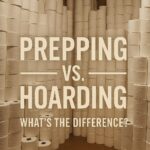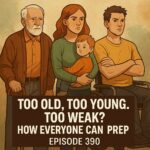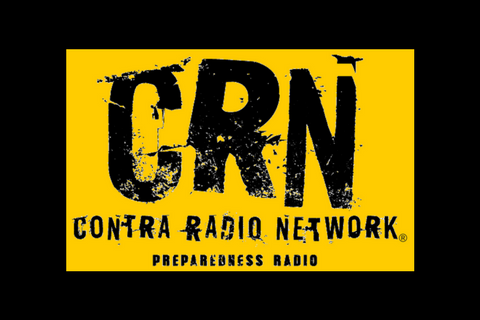Podcast
The Final Days of Rome: What Collapse Really Looks Like | Episode 394
When we think about collapse, we often imagine something fast and fiery—EMP blasts, mushroom clouds, or sudden civil war. But history rarely works that way. The fall of Rome was not a single event, but a long, grinding decline. And in many ways, it’s the best case study we have for what collapse actually looks like—especially when it happens to a civilization that once seemed untouchable.
"The Final Days of Rome: What Collapse Really Looks Like | Episode 394."
Survival Starts With Sleep: Why Rest is a Tactical Advantage | Episode 393
When people think about survival, they picture fire-starting, food gathering, and fending off threats. Rarely does anyone mention the most powerful, natural resource we all have access to: sleep. In Episode 393, we explore why sleep is your tactical advantage, how lack of it destroys your ability to survive, and what you can do to protect your rest—even when everything else is falling apart.
"Survival Starts With Sleep: Why Rest is a Tactical Advantage | Episode 393"
Prepping vs. Hoarding: What’s the Difference? | Episode 392
Every time there’s a crisis—be it a hurricane, a pandemic, or a shipping disruption—someone inevitably says, “Preppers are just hoarders.” It’s a lazy comparison and, frankly, a dangerous one. In Episode 391, we’re diving into the key differences between prepping and hoarding, why responsible preparedness isn’t selfish, and how preppers actually help the supply chain—not hurt it.
"Prepping vs. Hoarding: What’s the Difference? | Episode 392"
Prepping With Purpose: Are You Actually Ready or Just Collecting Gear? | Episode 391
Let’s be honest—buying gear is fun. There’s something deeply satisfying about adding another piece of kit to your bug-out bag, lining up rows of freeze-dried food, or testing the latest survival knife. But at some point, we have to stop and ask: Are we actually getting prepared, or are we just shopping?
"Prepping With Purpose: Are You Actually Ready or Just Collecting Gear? | Episode 391 "
Too Old, Too Young, Too Weak? How Everyone Can Prep | Episode 390
There’s a common stereotype that preppers are all ex-military, CrossFit-trained woodsmen with six-figure bug-out cabins and a 3-year food supply. But that’s not reality—and honestly, it’s not necessary. Prepping is for everyone. Whether you’re older, younger, living with a disability, or brand new to the game, you can get ready for hard times in your own way, at your own pace. In this episode, we’re breaking down how everybody can prep—no matter their physical ability, age, or experience level.
"Too Old, Too Young, Too Weak? How Everyone Can Prep | Episode 390"














Follow Us!